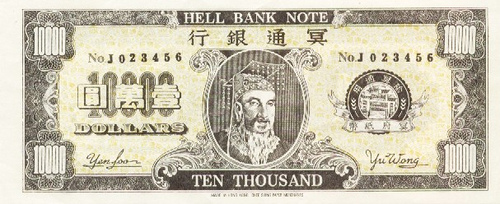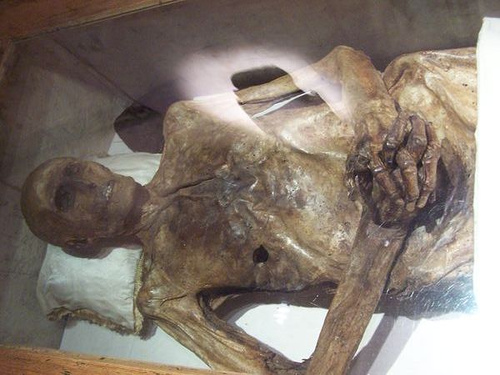When he wasn’t escaping straitjackets, Harry Houdini spent a lot of time debunking spiritualists.
Shortly before his death, he made a pact with his wife, Bess: If possible, he would contact her from the other side and deliver a prearranged coded message.
When he died, Bess lit a candle beside his photograph and kept it burning for 10 years, holding séances every Halloween to test the pact. Harry never spoke.
In 1936, after a final attempt on the roof of the Knickerbocker Hotel, Bess put out the candle.
“Ten years is long enough to wait for any man,” she said.




